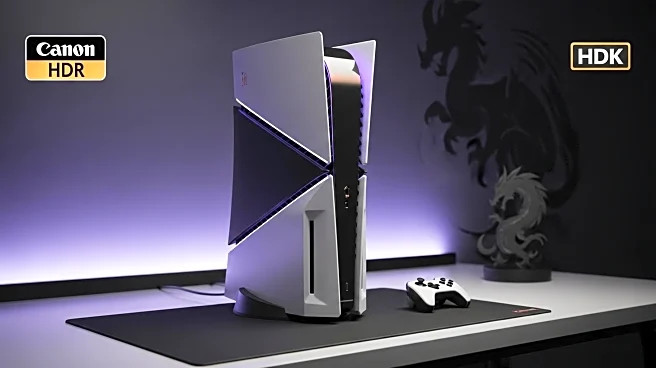What is the story about?
What's Happening?
Nintendo is currently engaged in a legal battle with Pocketpair, the developer of Palworld, over the use of mods as 'prior art' in patent disputes. Nintendo argues that user-made mods should not be considered prior art because they require a separate base game to function, thus not constituting standalone art. This argument is part of Nintendo's strategy to prevent Pocketpair from using popular Pokémon mods as evidence that similar gameplay features existed prior to their patented designs. The case has sparked significant debate within the gaming industry, with critics suggesting that Nintendo's stance could have wide-reaching implications for mod creators and the legal treatment of mods in gaming.
Why It's Important?
The outcome of this lawsuit could set a precedent for how mods are treated in legal contexts, potentially affecting the rights of mod creators and the gaming industry at large. If Nintendo's argument is accepted, it could lead to mods being excluded from 'prior art' considerations, which might allow companies to patent ideas already present in mods without legal challenge. This could stifle creativity and innovation among mod developers, who often contribute significantly to game communities. Additionally, it raises concerns about the protection of intellectual property and the balance between encouraging innovation and safeguarding existing creations.
What's Next?
The lawsuit is ongoing, and its resolution will depend on the court's interpretation of what constitutes 'prior art.' Legal experts suggest that Nintendo's position is extreme and may not be upheld, as courts typically reject attempts to narrow the scope of prior art. Meanwhile, Pocketpair continues to develop Palworld, aiming for a full release in 2026, while addressing technical issues in the game. The gaming community and legal analysts are closely watching the case, anticipating its impact on future patent disputes involving mods.
Beyond the Headlines
This case highlights the complex relationship between intellectual property law and the gaming industry, particularly regarding user-generated content. It raises ethical questions about the recognition and protection of creative contributions from mod developers, who often enhance and expand the gaming experience. The legal treatment of mods could influence cultural perceptions of ownership and creativity in digital spaces, potentially affecting how games are developed and enjoyed.















